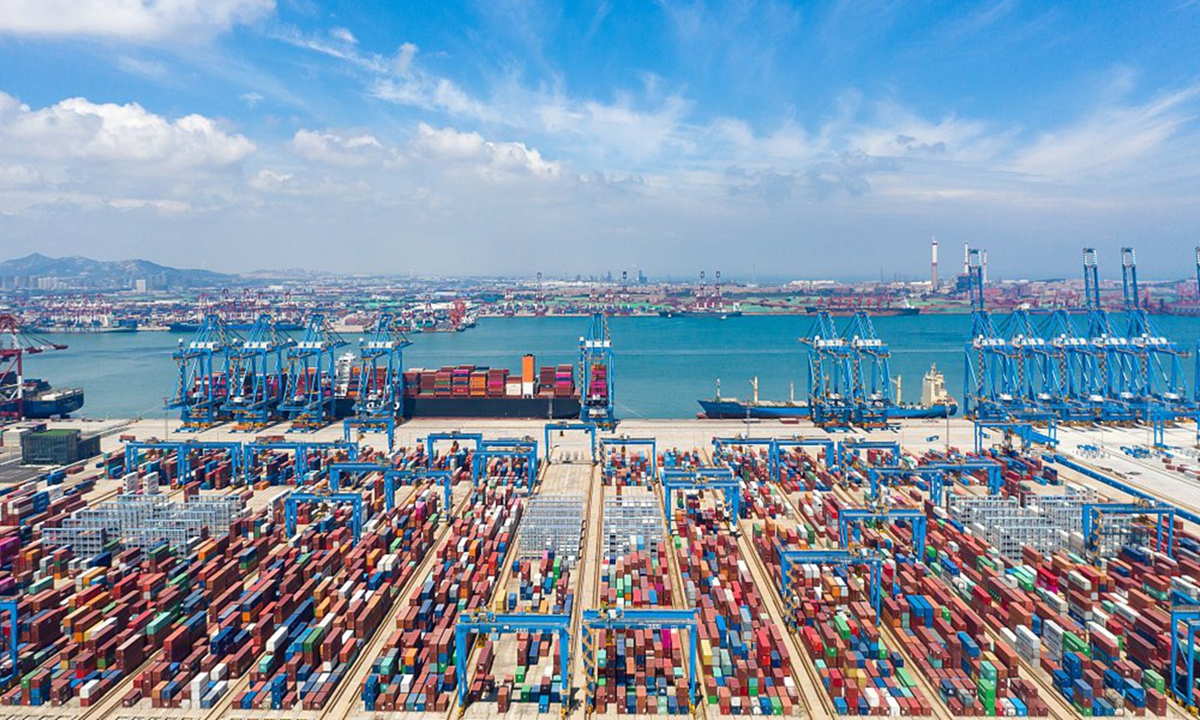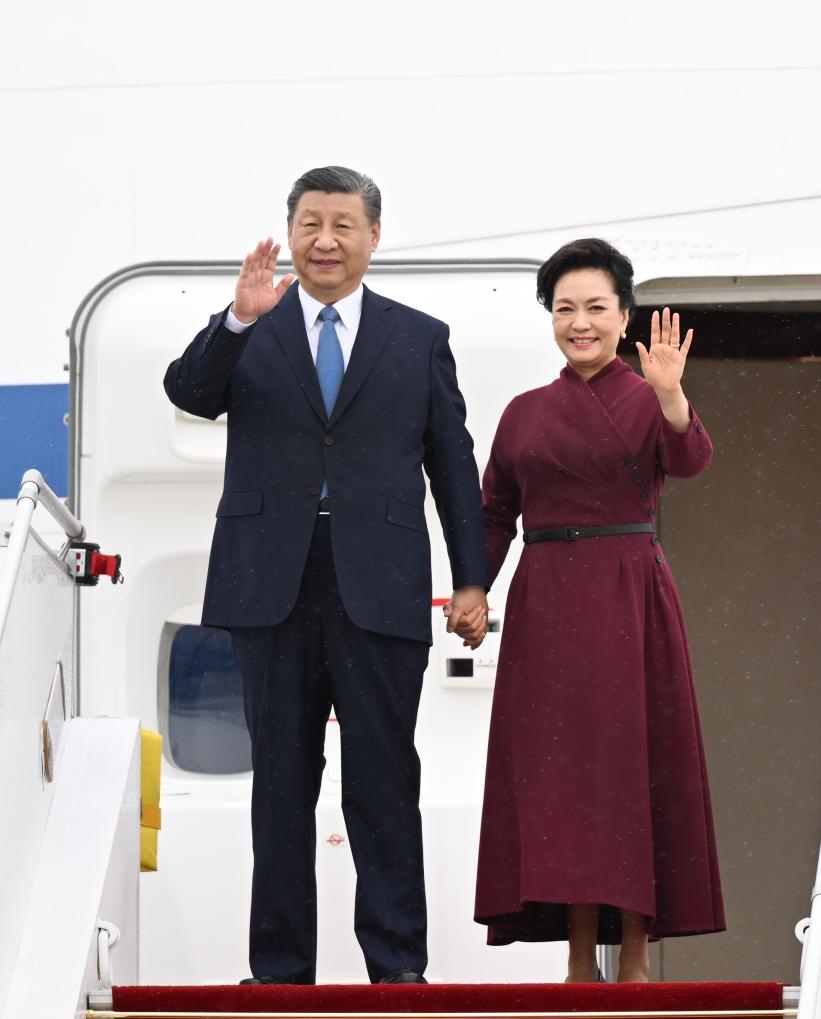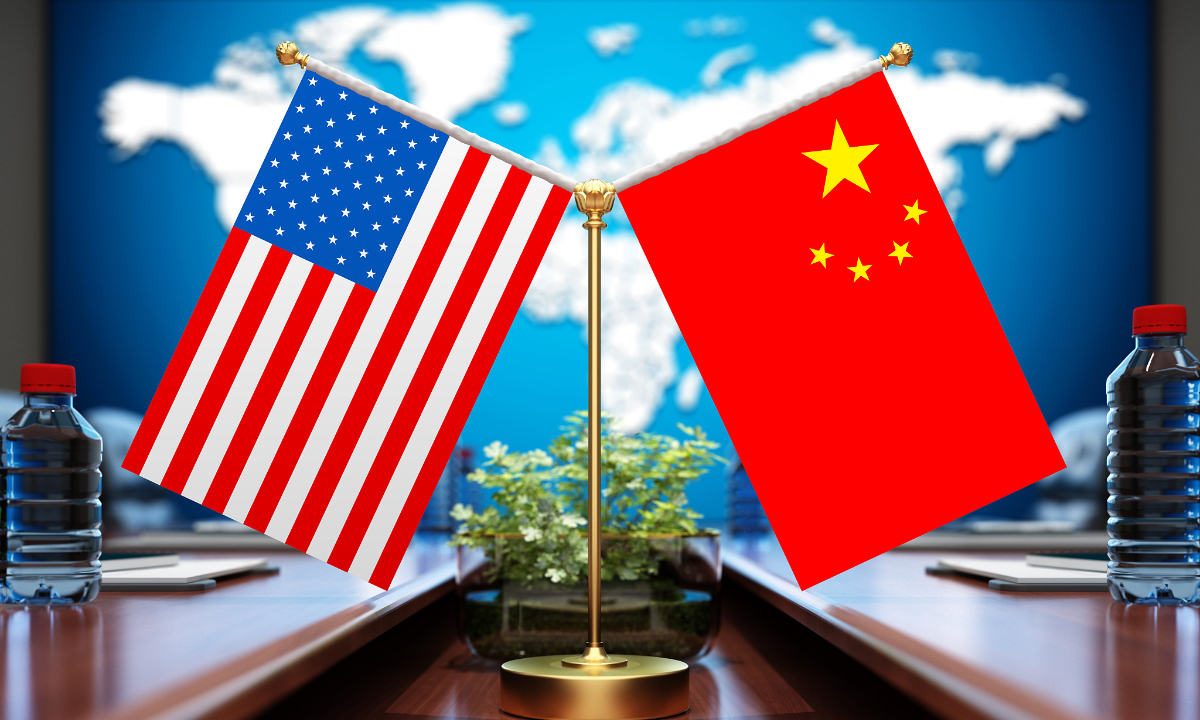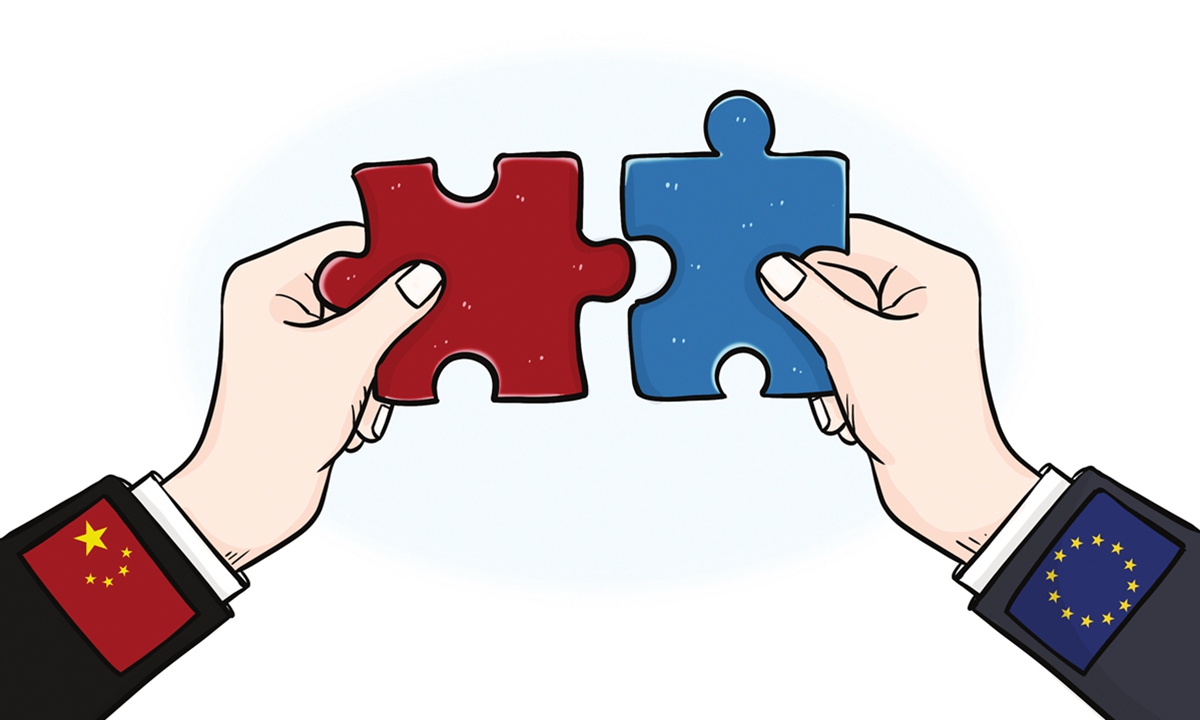China’s exports to US expand 2.4% in first four months, ‘stern warning’ to certain US politicians’ decoupling push
Surging trade reflects economic complementarity

China trade economy File photo: VCG
The return of growth underscored the resilience and complementarity of trade relations between the world's two largest economies, which will retain a ballast role in the bilateral relationship, observers said. They predicted that more potential could be released this year if the US can check its urge to relentlessly contain China's development.
The surging trade sent a stern warning to certain US politicians and their decoupling push against Chinese exports, either in the guise of smearing "overcapacity" or hyping "de-risking," analysts said. It shows that those politicians' actions - motivated by geopolitical intentions - severely deviate from the interests of the US business community, and only pragmatic cooperation with the Chinese side would lead to win-win results, they noted.
In the first four months, China's exports to the US grew 2.4 percent year-on-year to 1.08 trillion yuan in yuan-denominated terms, while imports edged down 2.5 percent to 387 billion yuan, according to data from the General Administration of Customs.
The US remained China's third-largest trading partner in the first four months, after ASEAN and the EU, according to the Global Times' calculations.
In the first quarter, China's exports to the US gained 2.1 percent, while imports were down 7.7 percent.
In April alone, bilateral trade reached 400.3 billion yuan, customs statistics showed, compared with 386.8 billion yuan a year earlier.
Observers said that bilateral trade showed a turnaround between March and April, amid animproving and stabilizing trajectory of bilateral relationships. Exchanges of high-level officials have intensified in recent months.
"It also showed that the Chinese and US economic structures are highly complementary andunderscored the win-win nature of bilateral cooperation," Gao Lingyun, an expert at the Chinese Academy of Social Sciences, told the Global Timeson Thursday.
The increasing competitiveness of Chinese quality exports to the US consumer market also showed that Chinese manufacturers have helped the US to mitigatepersistent inflation, analysts added.
Gao said that the rebound also reflected a broad recovery in global demand, which bodes well for China's overall foreign trade this year. In the first four months, China's merchandise trade rose 5.7 percent year-on-year to13.81 trillion yuan.
China-US trade is likely to continue the positive momentum in the coming months and exceed last year's level, taking account of the low base effect and the stronger US dollar, Gao said, though the upcoming US presidential election will mean some uncertainty for bilateral relations.
"The US may regain its position as China's second-largest trading partner this year, depending on how China's trade with the EU develops," Gao said.
China's trade with the EU fell by 1.8 percent to 1.75 trillion yuan in the first four months, which observers said was partly due to the sluggishness in the bloc's economy.
The release of thetrade data came as US politicians ramped up a crackdown against Chinese advantageous industries, using "overcapacity" claims to justify more protectionist measures against Chinese exports.
Cong Yi, a professor at the Tianjin University of Finance and Economics, told the Global Times on Thursday that the vigorous trade shows that the malicious geopolitical intentions of politicians represent a serious departure from the true interests and trading activities of US businesses.
"The US market did not buy into Washington's decoupling push, and it is eager for more pragmatic cooperation with the Chinese side," Cong noted.
The US reportedly revoked licenses that allowed companies including Intel and Qualcomm to ship chips used for laptops and handsets to Huawei, Reuters reported. Observers said that Chinese companies could have imported more US products if Washington had not imposed so many export restrictions.




